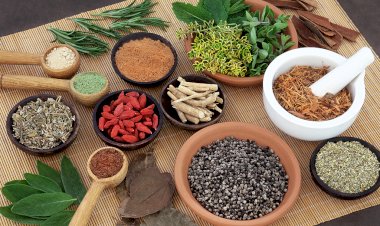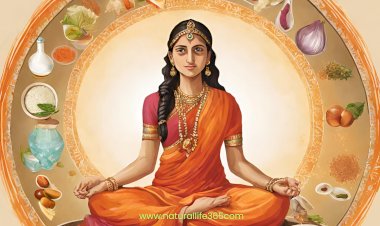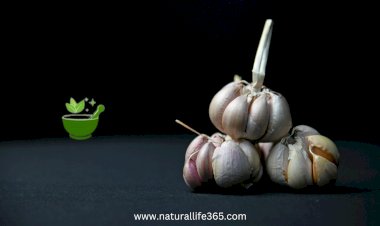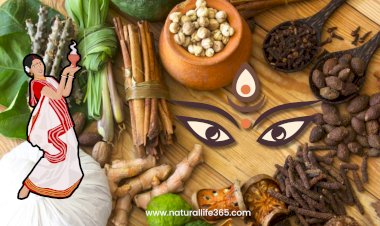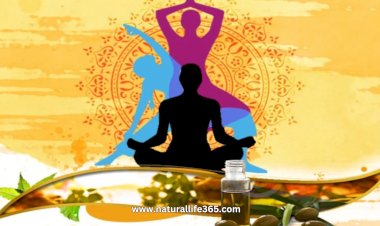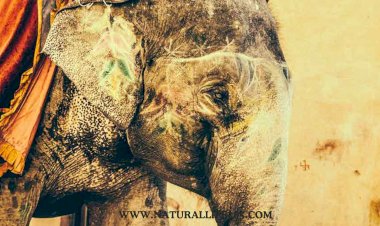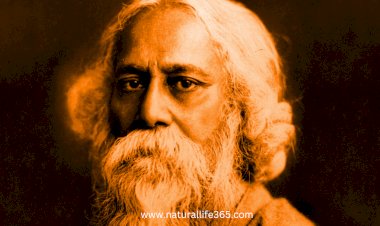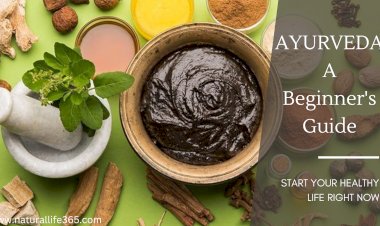Ayurvedic Remedies for Common Ailments
Explore natural Ayurvedic treatments for everyday health issues and enhance your well-being with ancient wisdom.
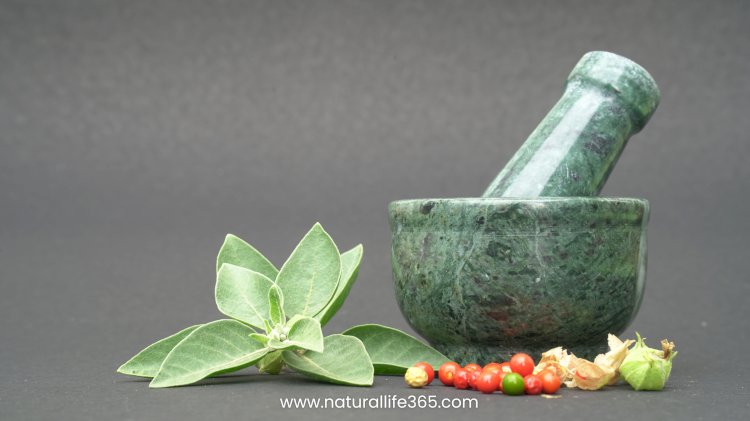
In today's fast-paced world, many of us seek natural and holistic approaches to health and wellness. Ayurveda, an ancient system of medicine from India, offers a treasure trove of remedies for common ailments that have stood the test of time. Rooted in the principles of balance and harmony, Ayurveda provides personalized treatments using herbs, diet, and lifestyle practices tailored to each individual's unique constitution.
In this blog, we'll explore effective Ayurvedic remedies for a range of common health issues, from colds and digestive problems to stress and insomnia. Discover how these age-old practices can enhance your well-being and integrate seamlessly into modern life.
How Ayurveda Differs from Western Medicine
Ayurveda's approach contrasts with Western medicine in several significant ways. While Western medicine often focuses on treating symptoms and diseases using pharmaceuticals and surgery, Ayurveda aims to address the root cause of illness by restoring balance within the body. This involves personalized treatment plans that include diet, herbal remedies, yoga, meditation, and lifestyle adjustments.
Moreover, Ayurveda places a strong emphasis on prevention. Regular detoxification, seasonal routines, and daily practices such as oil pulling and tongue scraping are encouraged to maintain health and prevent disease.
Understanding these foundational aspects of Ayurveda sets the stage for exploring specific remedies for common ailments. By considering the unique constitution and imbalance of doshas, Ayurvedic remedies offer a personalized and holistic approach to health and wellness.
Ayurvedic Remedies for Common Ailments
Ayurveda offers a wealth of natural remedies to address a variety of common ailments, focusing on restoring balance within the body and promoting overall well-being. These remedies are derived from natural sources such as herbs, spices, and oils, and are often complemented by dietary and lifestyle recommendations. Before diving into specific remedies, it's important to understand the general benefits of Ayurvedic treatments and some precautions to keep in mind.
Benefits of Using Ayurvedic Remedies
1. Natural Ingredients: Ayurvedic remedies primarily use natural ingredients that are gentle on the body and free from synthetic chemicals.
2. Personalized Approach: Treatments are tailored to an individual's unique constitution (dosha balance), ensuring more effective and holistic healing.
3. Preventive Care: Ayurveda emphasizes prevention through diet, lifestyle, and regular detoxification practices.
4. Holistic Wellness: Ayurvedic remedies address physical, mental, and emotional health, promoting overall well-being.
General Precautions and Consultation Advice
While Ayurvedic remedies can be highly effective, it is essential to follow certain precautions:
1. Consult an Ayurvedic Dr: Always seek advice from a qualified Ayurvedic practitioner, especially if you have a chronic condition or are taking other medications. A practitioner can help tailor remedies to your specific needs and ensure they do not interact adversely with any other treatments.
2. Quality of Ingredients: Use high-quality, preferably organic, ingredients to ensure the efficacy of remedies. The purity and potency of herbs and spices can significantly impact their effectiveness.
3. Monitor Reactions: Pay attention to how your body responds to new remedies. If you experience adverse effects such as allergic reactions or digestive discomfort, discontinue use and consult your practitioner.
4. Consistency: Ayurvedic treatments often require consistent use over time for the best results. Patience and regularity are key to achieving and maintaining health benefits.
5. Proper Dosage: Adhere to recommended dosages to avoid potential side effects or toxicity. More is not always better, especially with potent herbs and spices.
With these considerations in mind, let's explore specific Ayurvedic remedies for some common ailments.
Cold and Cough
Symptoms and Ayurvedic Perspective
Common colds and coughs are prevalent ailments that affect people of all ages. Symptoms typically include a runny or stuffy nose, sore throat, coughing, sneezing, body aches, and fatigue. From an Ayurvedic perspective, these symptoms result from an imbalance in the body's doshas, particularly an aggravation of Kapha dosha, which is associated with mucus and congestion. Additionally, Vata dosha, responsible for movement and circulation, can contribute to dryness and irritation in the respiratory tract.
Ayurveda aims to restore balance by using natural remedies that reduce Kapha and calm Vata, helping to alleviate symptoms and strengthen the immune system.
Home Remedies
Ayurvedic home remedies for colds and coughs are simple yet effective, leveraging the medicinal properties of common herbs and spices.
Tulsi (Holy Basil) Tea
Tulsi, or Holy Basil, is revered in Ayurveda for its powerful healing properties. It has anti-inflammatory, antibacterial, and antiviral effects, making it an excellent remedy for respiratory ailments.
Ingredients:
- 10-12 fresh Tulsi leaves or 1 teaspoon of dried Tulsi leaves
- 1 cup of water
- Honey (optional)
Instructions:
- Boil the water and add the Tulsi leaves.
- Let it simmer for 5-10 minutes.
- Strain the tea into a cup.
- Add honey if desired for sweetness and additional soothing properties.
Drink Tulsi tea 2-3 times a day to relieve cold symptoms and boost immunity.
Turmeric Milk (Golden Milk)
Turmeric is a potent anti-inflammatory and antioxidant. Combined with milk, it creates a soothing beverage that can help reduce throat irritation and enhance immune function.
Ingredients:
- 1 cup of milk (cow, almond, or any preferred milk)
- 1/2 teaspoon of turmeric powder
- A pinch of black pepper (enhances turmeric absorption)
- Honey or jaggery (optional, for sweetness)
Instructions:
- Heat the milk in a saucepan.
- Add the turmeric powder and black pepper.
- Stir well and let it simmer for 5 minutes.
- Pour into a cup and add honey or jaggery if desired.
Drink this golden milk once before bedtime to help soothe your throat and improve your body's resistance to infection.
Ginger and Honey Mixture
Ginger is well-known for its anti-inflammatory and antiviral properties, while honey acts as a natural cough suppressant and antibacterial agent.
Ingredients:
- 1 tablespoon of fresh ginger juice or 1/2 teaspoon of ginger powder
- 1 tablespoon of honey
Instructions:
- Mix the ginger juice or powder with honey to form a smooth mixture.
- Consume this mixture 2-3 times a day.
This remedy helps in reducing coughing and clearing congestion, providing quick relief from cold symptoms.
Preventative Tips
1. Strengthen Immunity: Regular consumption of immune-boosting herbs like Tulsi, turmeric, and ginger can help fortify your immune system.
2. Stay Hydrated: Drink plenty of warm fluids, such as herbal teas and warm water, to keep your respiratory tract moist and reduce irritation.
3. Eat a Balanced Diet: Incorporate a diet rich in fresh fruits, vegetables, and whole grains. Avoid cold, oily, and heavy foods that can increase Kapha.
4. Practice Pranayama: Breathing exercises like Pranayama can enhance lung capacity and improve respiratory health.
5. Maintain Hygiene: Regularly wash your hands and avoid touching your face to reduce the risk of infections.
6. Rest Well: Ensure adequate rest to help your body recover and strengthen its defense mechanisms.
Digestive Issues
Common Digestive Problems
Digestive issues are prevalent and can significantly impact daily life. Ayurveda identifies several common digestive problems, each with its underlying causes and imbalances:
- Indigestion: Often a result of weakened digestive fire (Agni), leading to discomfort, bloating, and nausea after meals.
- Gas: Excessive gas and bloating can be caused by improper food combinations, overeating, or an imbalance in the Vata dosha.
- Constipation: Difficulty in bowel movements, typically due to dehydration, lack of fiber, or an imbalance in Vata dosha.
Ayurvedic Solutions
Ayurveda offers a range of natural remedies to address these digestive issues, focusing on restoring balance and enhancing digestive fire.
Triphala Powder
Triphala, a blend of three fruits (Amalaki, Bibhitaki, and Haritaki), is a powerful digestive aid in Ayurveda. It helps detoxify the digestive tract, improving digestion, and alleviating constipation.
How to Use:
- Mix 1 teaspoon of Triphala powder in warm water and drink it before bedtime.
- Alternatively, you can take Triphala tablets as directed by an Ayurvedic practitioner.
Fennel Seeds
Fennel seeds are known for their carminative properties, which help in reducing gas, bloating, and improving digestion.
How to Use:
- Chew 1 teaspoon of fennel seeds after meals.
- Make fennel tea by steeping 1 teaspoon of fennel seeds in hot water for 5-10 minutes. Drink this tea after meals to aid digestion.
Cumin, Coriander, and Fennel (CCF) Tea
- CCF tea is a traditional Ayurvedic remedy that balances the digestive fire and soothes the digestive tract.
Ingredients:
- 1/2 teaspoon cumin seeds
- 1/2 teaspoon coriander seeds
- 1/2 teaspoon fennel seeds
- 4 cups of water
Instructions:
- Boil the water in a saucepan.
- Add the cumin, coriander, and fennel seeds.
- Let it simmer for 5-10 minutes.
- Strain the tea and drink it warm throughout the day.
CCF tea helps in reducing gas, and bloating, and promoting smooth digestion.
Dietary Recommendations
To maintain optimal digestive health, Ayurveda recommends certain dietary practices:
1. Eat Fresh and Warm Foods: Prefer freshly prepared, warm foods that are easier to digest. Avoid leftovers and processed foods.
2. Incorporate Spices: Use digestive spices like ginger, cumin, coriander, fennel, and turmeric in your cooking to enhance digestion.
3. Proper Food Combinations: Avoid improper food combinations that can disrupt digestion, such as mixing dairy with fruits or combining proteins with starches.
4. Hydrate Adequately: Drink warm water throughout the day to aid digestion and prevent constipation. Avoid ice-cold beverages as they can dampen the digestive fire.
5. Regular Meals: Eat at regular intervals and avoid overeating. Aim for three balanced meals a day with the largest meal at midday when digestion is strongest.
6. Mindful Eating: Eat slowly and chew your food thoroughly. Avoid distractions like watching TV or using electronic devices while eating.
Stress and Anxiety
Ayurvedic View on Mental Health
In Ayurveda, mental health is closely linked to the balance of the doshas as well as the harmony between the mind, body, and spirit. Stress and anxiety are often seen as disruptions in the Vata dosha, which governs movement and activity in the mind and body. Excessive Vata can lead to restlessness, fear, and a sense of being overwhelmed. Ayurveda emphasizes a holistic approach to managing stress and anxiety, incorporating herbal remedies, physical practices, and lifestyle modifications to restore balance and promote calmness.
Remedies and Practices
Ashwagandha
Ashwagandha (Withania somnifera) is a powerful adaptogenic herb renowned for its ability to reduce stress and anxiety. It helps stabilize the body's response to stress, promotes relaxation, and improves overall mental health.
How to Use:
- Take Ashwagandha in capsule or powder form as directed by an Ayurvedic practitioner.
- Mix 1/2 teaspoon of Ashwagandha powder in warm milk or water and drink it before bedtime to aid relaxation.
Brahmi
Brahmi (Bacopa monnieri) is another revered herb in Ayurveda, known for its calming effects and cognitive benefits. It helps enhance memory, reduce anxiety, and promote mental clarity.
How to Use:
- Take Brahmi in capsule or powder form as recommended by an Ayurvedic practitioner.
- Prepare Brahmi tea by steeping 1 teaspoon of Brahmi powder in hot water for 5-10 minutes. Drink this tea once or twice a day to support mental health.
Meditation and Yoga
Meditation and yoga are integral practices in Ayurveda for managing stress and anxiety. They help calm the mind, enhance self-awareness, and promote a sense of inner peace.
Meditation:
- Practice daily meditation for at least 10-15 minutes. Focus on deep, slow breathing and mindfulness to reduce stress levels.
- Guided meditations or apps can be helpful for beginners.
Yoga:
- Incorporate a regular yoga practice, focusing on poses that promote relaxation and grounding, such as Child's Pose (Balasana), Forward Bend (Uttanasana), and Legs Up the Wall (Viparita Karani).
- Practice Pranayama (breathing exercises) such as Nadi Shodhana (alternate nostril breathing) to balance the doshas and calm the mind.
Lifestyle Tips for Managing Stress
1. Maintain a Routine: Establish a daily routine (Dinacharya) to create stability and reduce stress. Wake up and go to bed at the same time every day, and include regular times for meals and relaxation.
2. Balanced Diet: Eat a balanced diet that includes fresh, wholesome foods. Avoid stimulants like caffeine and sugar, which can aggravate Vata and increase anxiety.
3. Adequate Sleep: Ensure you get 7-8 hours of restful sleep each night. Create a calming bedtime routine, such as drinking warm milk or herbal tea, and avoid screens before bedtime.
4. Abhyanga (Self-Massage): Perform a daily self-massage with warm oil, such as sesame or coconut oil, to ground Vata and promote relaxation.
5. Herbal Teas: Drink calming herbal teas like chamomile, lavender, or tulsi throughout the day to soothe the mind and body.
6. Limit Exposure to Stressors: Identify and limit exposure to unnecessary stressors, whether they are certain environments, activities, or people.
7. Positive Relationships: Cultivate positive relationships and spend time with loved ones. Social support is crucial for mental well-being.
8. Mindful Activities: Engage in activities that bring joy and relaxation, such as reading, gardening, or listening to music.
Skin Problems
Ayurvedic Understanding of Skin Issues
In Ayurveda, the skin is not only a protective barrier but also a reflection of internal health. Skin problems such as acne, eczema, and dry skin are often seen as manifestations of imbalances in the body's doshas as well as impurities in the blood (rakta dhatu) and toxins (ama) in the body.
- Acne: Typically associated with an imbalance in the Pitta dosha, which governs heat and metabolism. Excess Pitta can lead to inflammation, excessive oil production, and the appearance of acne.
- Eczema: Often linked to an imbalance in the Vata and Kapha doshas. Vata imbalance can cause dryness and itching, while Kapha imbalance can lead to thickened skin and oozing.
- Dry Skin: Primarily a result of an aggravated Vata dosha, causing the skin to lose moisture and become dry, rough, and flaky.
Natural Treatments
Ayurveda offers a variety of natural treatments to address these skin issues, focusing on balancing the doshas and purifying the skin.
Neem Paste
Neem (Azadirachta indica) is renowned for its powerful antibacterial, antifungal, and anti-inflammatory properties. It is highly effective in treating acne and other skin infections.
How to Use:
- Make a paste by mixing neem powder with water or rose water.
- Apply the paste to the affected areas and leave it on for 15-20 minutes.
- Rinse off with lukewarm water. Use this treatment 2-3 times a week to see improvements in acne.
Aloe Vera Gel
Aloe vera is well-known for its soothing and hydrating properties. It helps in treating dry skin, burns, and eczema by providing moisture and reducing inflammation.
How to Use:
- Extract fresh aloe vera gel from an aloe leaf.
- Apply the gel directly to the affected areas.
- Leave it on for 20-30 minutes and then rinse off with lukewarm water. Use this treatment daily for best results.
Turmeric Face Mask
Turmeric (Curcuma longa) has anti-inflammatory, antibacterial, and antioxidant properties, making it an excellent remedy for various skin issues, including acne and eczema.
Ingredients:
- 1 teaspoon turmeric powder
- 1 teaspoon honey
- 1 tablespoon yogurt or milk
Instructions:
- Mix the turmeric powder, honey, and yogurt/milk to form a smooth paste.
- Apply the mask evenly to your face and neck.
- Leave it on for 15-20 minutes.
- Rinse off with lukewarm water. Use this mask 1-2 times a week to brighten the skin and reduce inflammation.
Skincare Routine Suggestions
1. Cleansing: Cleanse your face twice daily with a gentle, natural cleanser suited to your skin type. For oily skin, use a cleanser with neem or tea tree oil. For dry skin, opt for a cleanser with aloe vera or rose.
2. Exfoliation: Exfoliate your skin 1-2 times a week using a natural scrub. Avoid harsh scrubs that can irritate the skin. Use ingredients like oatmeal or chickpea flour mixed with water or milk.
3. Hydration: Keep your skin hydrated by drinking plenty of water and using a natural moisturizer. For dry skin, use oils like almond or sesame oil. For oily skin, use lightweight moisturizers like aloe vera gel.
4. Sun Protection: Protect your skin from sun damage by applying natural sunscreen or wearing protective clothing and hats when outdoors.
5. Balanced Diet: Eat a balanced diet rich in fresh fruits, vegetables, whole grains, and healthy fats. Avoid processed foods, excessive sugar, and spicy foods that can aggravate skin issues.
6. Detoxification: Regular detoxification can help remove toxins from the body and improve skin health. Drink warm water with lemon in the morning, and consider seasonal detox practices recommended by an Ayurvedic practitioner.
7. Stress Management: Practice stress-reducing activities such as yoga, meditation, and deep breathing exercises. Stress can exacerbate skin problems, so managing it is crucial for maintaining healthy skin.
8. Sleep: Ensure you get adequate sleep each night to allow your skin to repair and rejuvenate.
Joint Pain and Arthritis
Causes and Ayurvedic Diagnosis
Joint pain and arthritis are common conditions that can significantly affect mobility and quality of life. In Ayurveda, these issues are often attributed to an imbalance in the Vata dosha, which governs movement and flexibility. An aggravated Vata can lead to dryness and stiffness in the joints, causing pain and inflammation. Additionally, the accumulation of ama (toxins) in the body can exacerbate these conditions by settling in the joints and causing further discomfort.
Common Causes of Joint Pain and Arthritis:
- Vata Imbalance: This leads to dryness, stiffness, and joint pain.
- Ama Accumulation: Toxins in the body that settle in the joints, causing inflammation and discomfort.
- Diet and Lifestyle: Poor dietary habits, lack of exercise, and stress can contribute to joint pain and arthritis.
- Aging: Natural wear and tear of the joints over time can lead to arthritis.
Remedies
Ayurveda offers a range of natural remedies to help alleviate joint pain and arthritis, focusing on reducing inflammation, improving joint mobility, and removing toxins from the body.
Turmeric and Ginger
Turmeric (Curcuma longa) and ginger (Zingiber officinale) are well-known for their potent anti-inflammatory properties. They can help reduce joint pain and improve mobility.
How to Use:
- Turmeric Milk: Mix 1/2 teaspoon of turmeric powder in a cup of warm milk. Add a pinch of black pepper to enhance absorption. Drink this once daily.
- Ginger Tea: Boil fresh ginger slices in water for 10 minutes. Strain and add honey for taste. Drink this tea 2-3 times a day.
Moringa
Moringa (Moringa oleifera) is a nutrient-dense plant that possesses strong anti-inflammatory properties, making it beneficial for treating arthritis and joint pain.
How to Use:
- Moringa Powder: Add 1 teaspoon of moringa powder to smoothies, soups, or warm water. Consume this daily.
- Moringa Capsules: Take moringa capsules as directed by an Ayurvedic practitioner.
Castor Oil Massage
Castor oil is renowned in Ayurveda for its ability to reduce inflammation and improve joint flexibility.
How to Use:
- Warm a small amount of castor oil.
- Massage the warm oil gently into the affected joints for 10-15 minutes.
- Wrap the joint with a warm cloth or heating pad for additional relief. Repeat this process daily for best results.
Exercise and Diet Tips
Exercise:
- Gentle Yoga: Practice gentle yoga poses that promote flexibility and strength, such as Cat-Cow Pose, Child's Pose, and Warrior Pose.
- Stretching: Incorporate daily stretching exercises to maintain joint mobility and reduce stiffness.
- Low-Impact Exercises: Engage in low-impact activities like swimming, walking, and cycling, which are easier on the joints.
Diet:
- Anti-Inflammatory Foods: Include anti-inflammatory foods in your diet, such as leafy greens, berries, nuts, seeds, and fatty fish.
- Healthy Fats: Consume healthy fats like olive oil, flaxseeds, and avocados to support joint health.
- Avoid Pro-Inflammatory Foods: Reduce or eliminate processed foods, sugary snacks, and red meat, which can exacerbate inflammation.
- Hydration: Drink plenty of water throughout the day to keep the joints lubricated and flush out toxins.
- Spices: Incorporate spices like turmeric, ginger, and cinnamon into your meals for their anti-inflammatory benefits.
Insomnia
Ayurvedic Insights on Sleep Disorders
In Ayurveda, sleep is considered one of the three pillars of health (alongside diet and lifestyle). Adequate and quality sleep is essential for maintaining physical, mental, and emotional well-being. Insomnia, or sleeplessness, is often viewed as a disturbance in the Vata and Pitta doshas.
- Vata Imbalance: Characterized by excessive mental activity, worry, and anxiety, leading to difficulty in falling and staying asleep.
- Pitta Imbalance: Associated with excess heat in the body, leading to restlessness and disturbed sleep, often accompanied by vivid dreams and waking up in the early hours.
Ayurvedic approaches to treating insomnia focus on calming the mind, balancing the doshas, and creating a soothing bedtime routine.
Sleep-Enhancing Remedies
Warm Milk with Nutmeg
Nutmeg is known for its sedative properties and ability to promote relaxation and sleep.
How to Use:
- Heat a cup of milk (cow, almond, or any preferred milk).
- Add a pinch of nutmeg powder and stir well.
- Drink this warm milk about 30 minutes before bedtime to help induce sleep.
Brahmi Tea
Brahmi (Bacopa monnieri) is a revered herb in Ayurveda for its calming effects and ability to enhance cognitive function, reduce stress, and promote restful sleep.
How to Use:
- Steep 1 teaspoon of Brahmi powder or dried Brahmi leaves in a cup of hot water for 5-10 minutes.
- Strain and drink this tea in the evening or before bedtime.
Abhyanga (Self-Massage with Warm Oil)
Abhyanga is a traditional Ayurvedic practice of self-massage with warm oil, which helps to calm the nervous system, reduce Vata imbalance, and promote deep, restful sleep.
How to Use:
- Warm sesame oil or almond oil to a comfortable temperature.
- Massage the warm oil gently all over your body, focusing on the scalp, feet, and hands.
- Allow the oil to penetrate for 15-20 minutes, then take a warm bath or shower.
- Perform Abhyanga before bedtime to help relax your body and mind.
Sleep Hygiene Practices
1. Establish a Routine: Go to bed and wake up at the same time every day, even on weekends, to regulate your body's internal clock.
2. Create a Relaxing Environment: Ensure your bedroom is quiet, dark, and cool. Use comfortable bedding and consider using calming scents like lavender or sandalwood.
3. Limit Screen Time: Avoid screens (TV, computer, smartphone) at least an hour before bedtime. The blue light emitted can interfere with your natural sleep-wake cycle.
4. Avoid Stimulants: Reduce consumption of caffeine, nicotine, and other stimulants, especially in the late afternoon and evening.
5. Mindful Eating: Avoid heavy meals and spicy foods close to bedtime, as they can cause discomfort and disrupt sleep. Opt for a light, easily digestible dinner.
6. Wind-Down Routine: Develop a calming pre-sleep routine, such as reading a book, listening to soothing music, or practicing gentle yoga or meditation.
7. Limit Naps: If you need to nap, keep it short (20-30 minutes) and avoid napping late in the day to prevent interference with nighttime sleep.
8. Hydration: Stay hydrated throughout the day, but limit fluids in the evening to reduce the need for nighttime bathroom visits.
Headaches and Migraines
Types and Ayurvedic Understanding
Headaches and migraines are common conditions that can vary in intensity and frequency. In Ayurveda, headaches are classified based on their underlying doshic imbalances and root causes. These imbalances can be attributed to factors such as poor digestion, stress, hormonal fluctuations, and environmental triggers.
- Vata Headaches: Characterized by symptoms like throbbing pain, sensitivity to light and sound, and dryness in the head. They are often associated with stress, anxiety, and irregular eating habits.
- Pitta Headaches: Typically involve intense, burning pain, accompanied by sensitivity to light, nausea, and irritability. Pitta headaches may result from excess heat in the body, triggered by spicy foods, hot weather, or emotional stress.
- Kapha Headaches: Manifest as dull, heavy pain, often accompanied by congestion, sinus pressure, and lethargy. Kapha headaches may arise due to sinusitis, allergies, or sluggish digestion.
Treatments
Ayurvedic treatments for headaches and migraines aim to alleviate symptoms, balance the doshas, and address the root cause of the problem.
Peppermint Oil
Peppermint oil has analgesic and cooling properties that can help soothe headaches and migraines. It also promotes relaxation and reduces muscle tension.
How to Use:
- Dilute a few drops of peppermint oil with a carrier oil like coconut or almond oil.
- Gently massage the diluted oil onto your temples, forehead, and neck.
- Alternatively, inhale the aroma of peppermint oil by adding a few drops to a bowl of hot water and inhaling the steam.
Feverfew
Feverfew (Tanacetum parthenium) is an herb traditionally used to prevent and treat migraines. It helps reduce inflammation, relieve pain, and prevent the dilation of blood vessels in the brain.
How to Use:
- Take feverfew capsules or tablets as directed by an Ayurvedic practitioner.
- Alternatively, you can make feverfew tea by steeping dried feverfew leaves in hot water for 10-15 minutes. Drink this tea once daily for migraine prevention.
Nasya Therapy (Nasal Drops)
Nasya therapy involves administering herbal oils or medicated drops into the nostrils to lubricate the nasal passages, relieve congestion, and balance the doshas. It is particularly beneficial for headaches caused by sinus congestion or Kapha imbalance.
How to Use:
- Lie down on your back with your head tilted slightly backward.
- Instill 2-3 drops of warmed herbal oil (such as sesame oil or ghee) into each nostril using a dropper.
- Inhale deeply to allow the oil to penetrate the nasal passages.
Prevention Strategies
1. Dietary Modifications: Identify and avoid trigger foods that may exacerbate headaches, such as processed foods, caffeine, alcohol, and artificial additives. Follow a balanced diet with plenty of fresh fruits, vegetables, whole grains, and lean proteins.
2. Hydration: Drink an adequate amount of water throughout the day to prevent dehydration, which can trigger headaches. Avoid excessive consumption of sugary beverages and caffeinated drinks.
3. Stress Management: Practice relaxation techniques like deep breathing, meditation, and yoga to reduce stress and tension, which are common triggers for headaches.
4. Regular Exercise: Regularly exercise to improve circulation, reduce muscle tension, and promote overall well-being. Choose low-impact exercises like walking, swimming, or cycling.
5. Sleep Hygiene: Maintain a consistent sleep schedule, aiming for 7-8 hours of quality sleep each night. Create a relaxing bedtime routine and ensure your sleep environment is conducive to rest.
6. Posture Correction: Maintain good posture throughout the day, especially when sitting or working at a desk. Poor posture can strain the neck and shoulders, leading to tension headaches.
7. Herbal Supplements: Consider taking Ayurvedic supplements like ashwagandha or Brahmi to support overall health and reduce the frequency of headaches.
Women's Health Issues
Women's health encompasses a range of issues unique to the female body, from menstrual irregularities and discomfort to the hormonal changes associated with menopause. Ayurveda offers holistic approaches to address these concerns, focusing on restoring balance, supporting reproductive health, and promoting overall well-being.
Menstrual Cramps, PMS, and Menopause
- Menstrual Cramps: Many women experience menstrual cramps, or dysmenorrhea, characterized by abdominal pain and discomfort during menstruation. These cramps are often caused by hormonal imbalances, uterine contractions, and inflammation.
- PMS (Premenstrual Syndrome): PMS refers to a range of physical and emotional symptoms that occur in the days leading up to menstruation. Common symptoms include mood swings, irritability, bloating, breast tenderness, and fatigue.
- Menopause: Menopause marks the end of a woman's reproductive years, typically occurring in the late 40s to early 50s. It is characterized by a decline in estrogen and progesterone levels, leading to symptoms such as hot flashes, night sweats, mood changes, vaginal dryness, and changes in menstrual cycles.
Remedies
Shatavari
Shatavari (Asparagus racemosus) is a revered herb in Ayurveda known for its rejuvenating and hormone-balancing properties. It supports female reproductive health, regulates menstrual cycles, and helps alleviate symptoms of PMS and menopause.
How to Use:
- Take Shatavari capsules or tablets as directed by an Ayurvedic practitioner.
- Alternatively, you can consume Shatavari powder mixed with warm milk or water. Drink this once or twice daily.
Ginger Tea
Ginger (Zingiber officinale) is a potent anti-inflammatory herb that can help relieve menstrual cramps, reduce inflammation, and alleviate digestive discomfort associated with PMS.
How to Use:
- Grate a small piece of fresh ginger root and steep it in hot water for 5-10 minutes.
- Strain the tea and add honey or lemon for flavor, if desired.
- Drink ginger tea 2-3 times a day during menstruation or in the days leading up to it to ease cramps and discomfort.
Sesame Oil Massage
Sesame oil massage, or Abhyanga, is a therapeutic practice in Ayurveda that helps promote relaxation, improve circulation, and alleviate muscular tension. It can be particularly beneficial for relieving menstrual cramps and reducing PMS symptoms.
How to Use:
- Warm sesame oil to a comfortable temperature.
- Massage the warm oil onto your abdomen and lower back in gentle, circular motions.
- Apply firm but gentle pressure to areas of tension or discomfort.
- Leave the oil on for 15-20 minutes to allow absorption before bathing or showering.
Additional Resources
Recommended Books and Websites on Ayurveda
1. Books:
- The Complete Book of Ayurvedic Home Remedies by Vasant Lad
- Ayurveda: The Science of Self-Healing by Dr. Vasant Lad
- The Ayurveda Way: 108 Practices from the World's Oldest Healing System for Better Sleep, Less Stress, Optimal Digestion, and More by Ananta Ripa Ajmera
- Ayurveda Lifestyle Wisdom: A Complete Prescription to Optimize Your Health, Prevent Disease, and Live with Vitality and Joy by Acharya Shunya
2. Websites:
- National Ayurvedic Medical Association (NAMA): Provides information on Ayurvedic education, practitioners, and events.
- Ayurvedic Institute: Offers courses, workshops, and resources on Ayurveda.
- Banyan Botanicals: Offers high-quality Ayurvedic products, educational articles, and recipes.
Contact Information for Ayurvedic Practitioners
If you're interested in consulting with an Ayurvedic practitioner for personalized guidance and treatment, you can find qualified professionals through the following avenues:
Links to Related Articles and Blogs
Explore more about Ayurveda and related topics by reading articles and blogs from reputable sources:
1. Chopra Center Articles: Offers a wealth of articles on Ayurveda, meditation, yoga, and holistic wellness.
2. Ayurvedic Living Blog: Provides informative articles on Ayurvedic principles, remedies, and lifestyle practices.
3. Everyday Ayurveda: Features articles, recipes, and resources for integrating Ayurveda into daily life.
4. Ayurveda Journal of Health: Publishes research-based articles and insights on Ayurvedic medicine and holistic health.
Have you tried Ayurvedic remedies for common ailments or women's health issues? I'd love to hear about your experiences! Share your success stories, tips, and insights with our community in the comments section below. Your feedback can inspire and support others on their journey to holistic health.
Stay updated on the latest health tips, Ayurvedic remedies, and wellness insights by checking this blog. Don't miss out on valuable information that can empower you to lead a healthier, happier life.
If you value these free online resources provided by Natural Life 365, please consider supporting my website by sharing the blogs ![]()
DISCLAIMER:
Some of the links in this content may be affiliate links. This means that if you click on one of the links and make a purchase, I may receive a commission (at no extra charge to you). However, I only recommend products that I personally use and have tested myself. Also, understand that I have taken reasonable steps to ensure that the information on this content is accurate, but I cannot represent that the website(s) mentioned in this post are free from errors. Please, check the Affiliate Disclosure at the bottom of this website.










